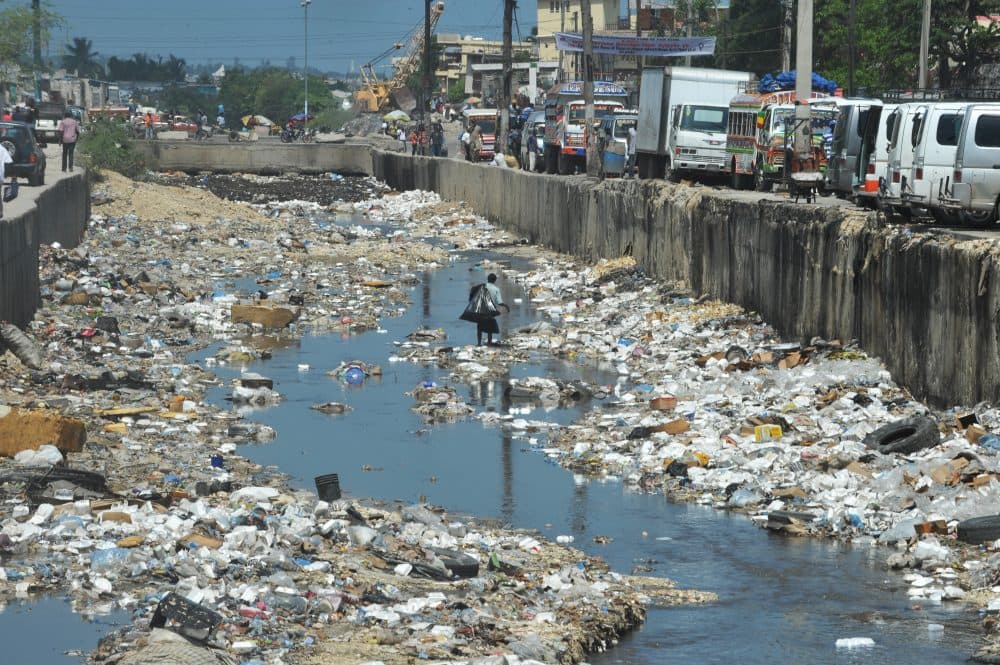Advertisement
Using Pollution To Alleviate Poverty
Resume
David Katz of Plastic Bank thinks poverty and pollution can be mitigated by his company, which builds facilities where plastic collectors can bring their wares and earn cash or credit in an online account.
Here & Now's Robin Young speaks with Katz (@DavidKatzPB) to learn more.
"I think that there's a great conversation in this idea that if every piece of packaging or bottle was $5, we know that there would be none in garbage cans or in the ditch or in the streets," Katz says. "People don't throw money away."
Interview Highlights
On how the process works
"One of our collectors ... she's a remarkable example of one of the collectors in our system. She makes a living by collecting material from streets, or from door to door, business to business, and collects a volume of material. And at the end of the day she brings material to us. And it's more of a community center where she's greeted, acknowledged, known, and the material's weighed and the quality of the material is validated. And then a value, depending on the material and the type that she's brought to us, is provided to her and to an online account, or she can spend it in the store. She can buy sustainable cooking fuel, Wi-Fi, cellphone minutes. In the Philippines, we offer medical insurance, access to filtered water. And we're most most proud to offer school tuition."
On being for-profit
"The Plastic Bank is a for-profit organization that brokers the material that we collect as social plastic. The brands that buy our material, like the German consumer goods company, they buy that material as a input into their manufacturing, and they pay a social plastic rate. And we make a profit on that, and that helps us support the creation of additional collection centers, lets us grow into more countries. It allows us to engage and educate more of our collectors."
On incentivizing recycling
"As we continue to reveal a value in this material resource, we see that people are beginning to keep and collect all the material they encounter, like within the Philippines, where there is a multilayer sachet economy."
"All the plastic we've ever produced is really, mostly still here as waste. And at a low end, of 50 cents per kilogram, we could potentially be unleashing a $4 trillion value as a currency for the poor."
David Katz
On where the company is operating
"We're powerfully and fully executed in Haiti, in the Philippines, in the slums of Manila. We've just launched Brazil, working into São Paulo. And we've just launched powerfully, as well, into Indonesia and that same relationship that's taken us into Indonesia is also seeding us into South Africa."
On goals for the company and the plastic
"All the plastic we've ever produced is really, mostly still here as waste. And at a low end, of 50 cents per kilogram, we could potentially be unleashing a $4 trillion value as a currency for the poor. It's not a handout, and that's the power in this being a for-profit business. We have not yet encountered anyone that has brought recycling or solid waste to the ultra-poor. We really are the Uber of recycling, allowing the poor themselves to make the most. That's been the change that the poor have been waiting for. Ultimately, we're launching a wave of entrepreneurship in solution using the value that is inherent inside that petroleum resource."
This article was originally published on April 11, 2018.
This segment aired on April 11, 2018.